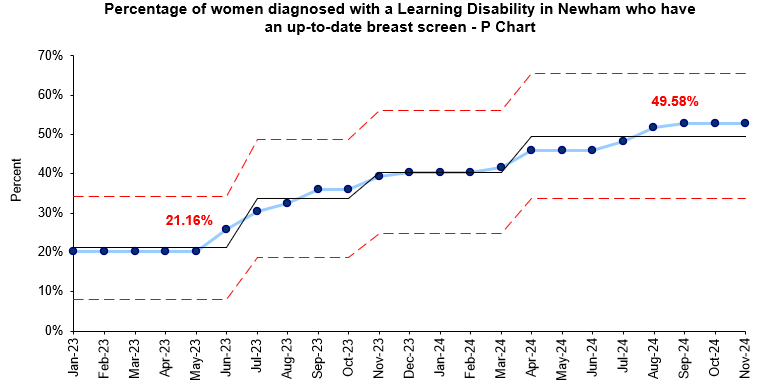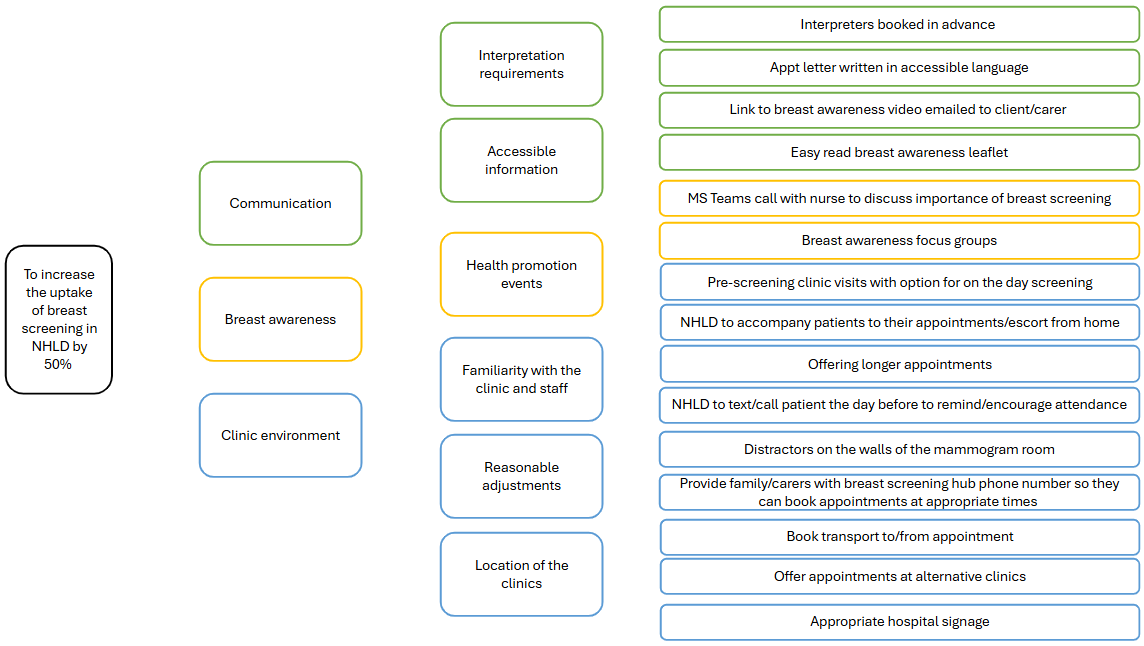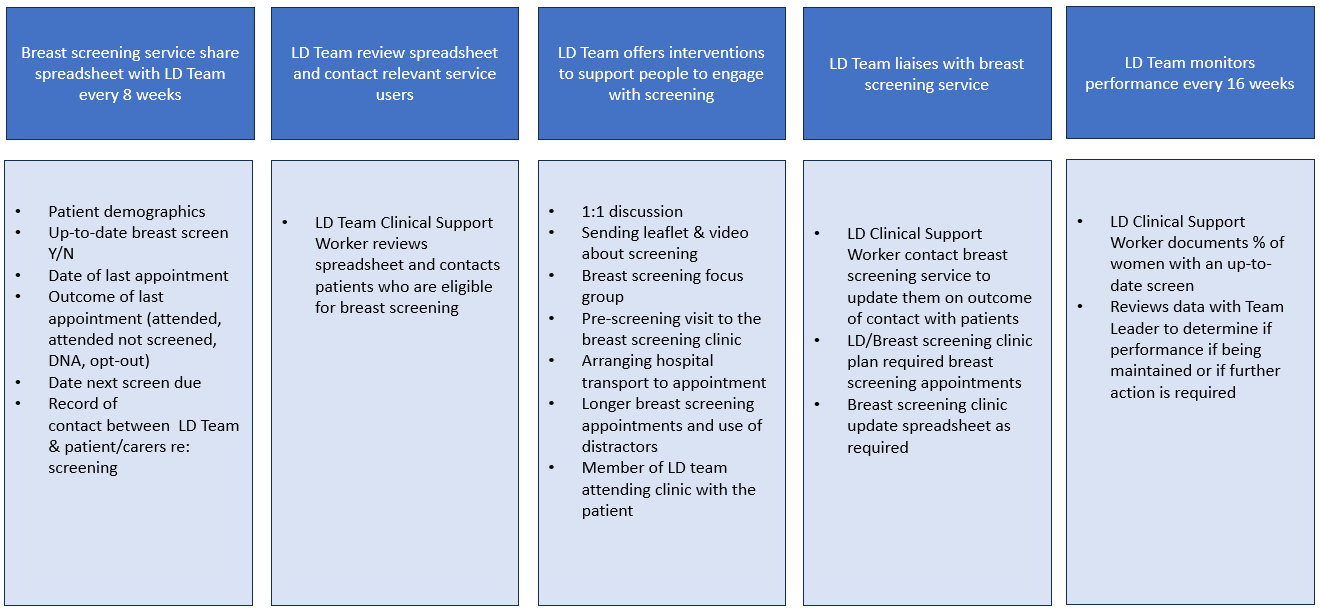
Improving the uptake of breast-screening for women with a Learning Disability in Newham
13th January 2025
Written by Rubia Khatun (Clinical Support Worker), Robin Betts (Team Manager), and Cassie Philpin (Senior Improvement Advisor)
One in eight women will develop breast cancer at some time in their life; with 80% of breast cancers occurring in women over 50. Breast screening can help to find small changes in the breast before there are any other signs or symptoms. Early detection may mean simpler and more successful treatment. The latest research shows that the NHS Breast Screening Programme is now saving over 1400 lives every year in England.
In early 2023, only 21% of eligible women with a Learning Disability that lived in the London Borough of Newham attended their routine breast screening appointment. The NHS England figures for the same period for uptake of breast screening in the general population in London was 54%. This highlighted inequity in access and was potentially leading to worse health outcomes for women with learning disability.
The Newham Health Team for Adults with Learning Disabilities therefore embarked on a Quality Improvement project to close this equity gap. They set themselves an initial aim of 31.5% of women having an up-to-date breast screen by December 2024 (an increase of 50% from their baseline).
The team spoke to women and staff at the breast screening clinic and identified the following reasons that might prevent women from attending these screening appointments:
- Unfamiliar environments and people.
- Being unsure, scared or embarrassed about the process.
- Sensory needs or challenging behaviours making physical examinations more complicated in a routine clinic.
- Lack of understanding of the importance of breast screening and literacy and/or language barriers.
They went on to generate a range of change ideas that they thought would help overcome these barriers and achieve their aim, all of which are captured in their Driver Diagram (see figure 1).
The ideas they have tested and gone on to implement include:
- Improved data sharing to better identify women who are eligible for breast screening.
- A Clinical Support Worker leading on engagement with clients requiring breast screening and liaising with the breast screening clinic.
- Creating easy read breast awareness materials and appointment invite letters and a breast awareness video.
- Running breast awareness focus groups and speaking with women and their carers about the importance breast screening.
- Offering visits to the breast screening clinic, accompanied by LD team staff, with the option of having screening on the day.
- Offering longer appointments, with distractors on the walls in the mammogram room.
- Providing practical support to attend appointments and being flexible with appointment times.
Figure 1: Driver Diagram
The team have now exceeded their aim of increasing the percentage of women with Learning Disability who have an up-to-date breast screen by 50% (see figure 2), going from 21% in early 2023, to 49.5% by the end of 2024.

Figure 2: P Chart showing percentage of women with LD who have an up-to-date breast screen
They now have an established process, working with their colleagues at the Breast Screening Service at the Royal Free London, to regularly review their caseload and identify women who require breast screening and to support them to engage with the service (see figure 3).
Figure 3: Process for monitoring breast screening appointments
“Developing this project under the umbrella of QI enabled us to remain focused in planning and achieving our predefined goal. Data analysis is not always a strength of health practitioners, but working in partnership with the QI Lead and other involved parties has helped us to create workable spreadsheets for ongoing performance monitoring. The impact for service users is potentially lifesaving. The multiple barriers in accessing healthcare for people with learning disabilities are well documented, but this project shows that through a versatile, person-centred approach these can be overcome”.
Robin Betts, Team Leader
The team are planning to share their learning with other Learning Disability services across the Trust and the North-East London Cancer Alliance, as well as use QI methodology to improve the uptake of screening for other types of cancer.
Most Read Stories
-
Why is Quality Control important?
18th July 2018

-
An Illustrated Guide to Quality Improvement
20th May 2019

-
2016 QI Conference Poster Presentations
22nd March 2016
-
Recognising Racism: Using QI to Help Take Action
21st January 2021

-
Using data enabled us to understand our problem
31st March 2023

-
QI Essentials: What does a Chief Quality Officer do?
18th March 2019


Follow QI on social media
To keep up to date on the latest concerning QI at ELFT, follow us on our socials.




